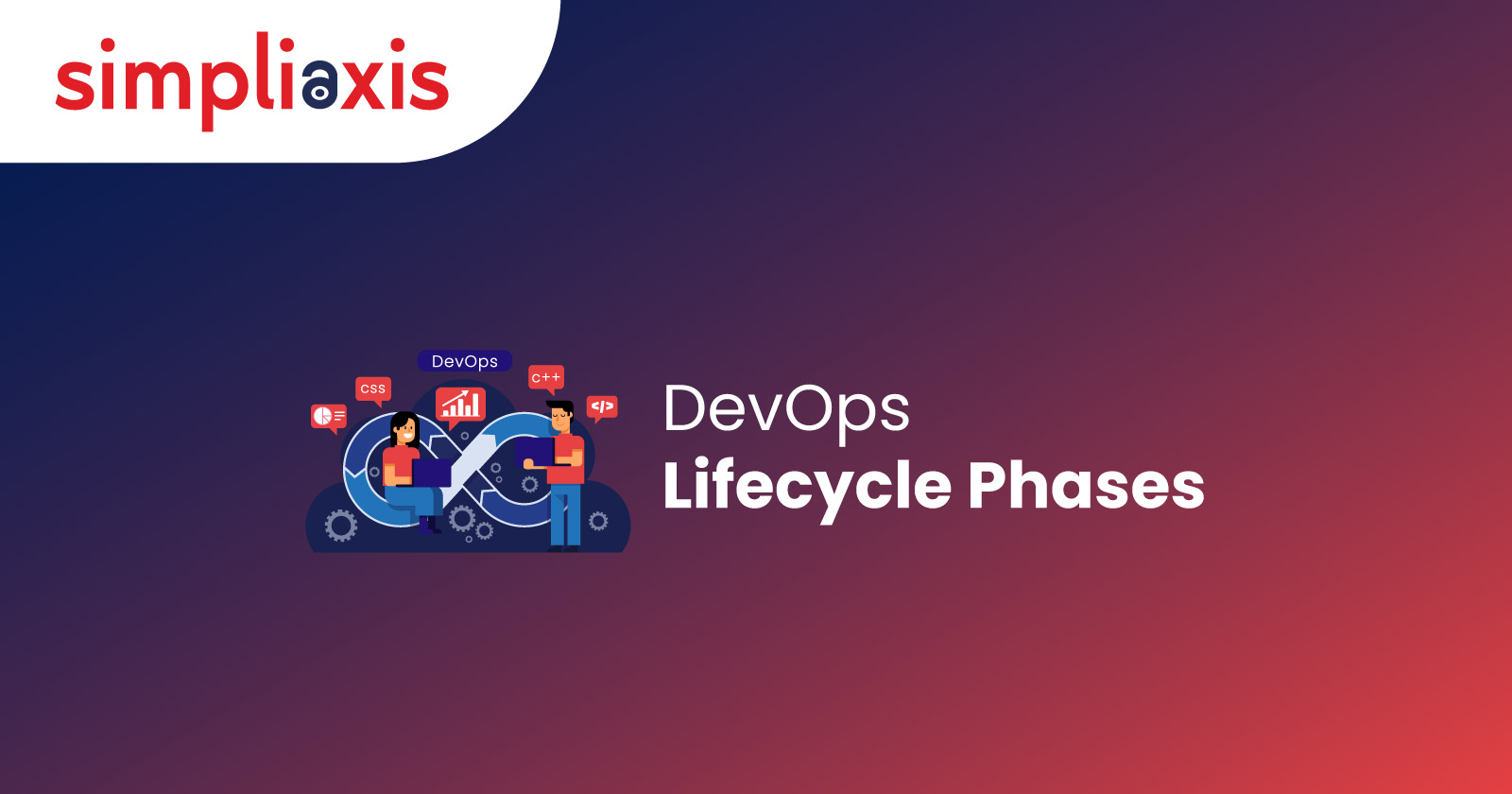If you want to be one of the best paid DevOps professionals, then you are in the right place to know everything about the DevOps lifecycle. DevOps is a culture developed in organizations to facilitate seamless collaboration between the development and operation teams. Thus, over 58% of organizations use DevOps lifecycle phases to speed up delivery as per an Agile report. Hence if you are a developer interested in operations or even with a passion for coding, continue reading to learn all about DevOps to get set on the road to success in the highly competitive job market.
The rise & rise of DevOps
Since 2009, DevOps has become the approach many organizations use in software development stages. Created by software engineers for software engineers, it cuts short the systems development life cycle by providing continuous delivery with high software quality. Many consider it the off-shoot approach of the Lean and Agile practices for smooth coordination of the development and operations teams. For the past more than a decade, its importance is continuously rising among organizations to offer the best-paid career opportunities. Hence, training in the many stages of the DevOps lifecycle will be the right choice to go up the worldwide career ladder in the software business.
What is the DevOps lifecycle?
After learning about the importance of DevOps, it is time to learn about the many lifecycle phases. Before the DevOps, there was an enormous gap between software development and the operations team. It had many problems like time delays, inferior software difficulty for the users, and many others. The primary reason for it is before Agile, and the two teams worked in silos with the development team making the product and the operations team handling the process later. The DevOps lifecycle helps for the seamless collaboration of the two teams in all software development stages. It includes the many DevOps lifecycle phases like continuous integration, deployment, and software development monitoring. It helps all stakeholders to have a constant review throughout the software development process for holistic thinking and making high-quality software. It reduces the development time for a stable release and enhances its usage by the end-user to be a grand success.
The importance of different DevOps lifecycle phases
It is better than the previous software development models like Waterfall and Agile because of the different DevOps lifecycle phases. Continuity is the base for all the DevOps phases to not stop till achieving the goal.
The following are the many stages of the DevOps lifecycle explained in detail for you to understand and implement effectively.
Continuous Development
The Continuous Development phase is the first step in envisioning the entire software development project. Hence, it involves all the planning and coding essential for developing the software based on those perceptions. Though the planning does not include effective tools, some tools, like JavaScript, Python, Ruby, and others, are essential for maintaining the code.
SCM or Source Code Management maintains the code that needs version control tools like Git, TFS, etc. It is easy to understand and deploy these tools for effective software development by excellent DevOps lifecycle training.
Continuous Integration
Maintaining the source code is difficult as it changes daily, and it emphasizes the need for the next DevOps lifecycle phase of continuous integration. It is the core of the entire DevOps lifecycle to build new codes to support add-on functionalities and integrate them into the existing code. Building the code also includes using tools for code review, packaging and unit, and integration testing. It is to detect any bugs early and bring additional functionalities to the application. Also, it helps to reflect the modifications of the end-users experience with the updated code.
Practical training on this DevOps lifecycle and its tools, like Jenkins, will help you build code in the .exe format so that transitions occur seamlessly. It will also help you package and proceed with the updated code to either the production or testing server, the third DevOps lifecycle phase.
Continuous Testing
Continuous Testing is one of the essential stages of the DevOps lifecycle as it tests for bugs. Some developers use it before Continuous Integration, as it is possible to reposition it based on the application code’s updates. This phase is done by creating a simulation of the test environment with the help of Docker containers. Unlike manual testing, continuous automated testing saves developers time and effort. It improves the test evaluation process by generating reports that analyze the failed cases quickly. Once undergoing this phase through UAT or user acceptance testing, the resulting suite will be simpler and bug-free.
A good deal of automation testing DevOps tools like Selenium, TestNG, JUnit, and others help in this phase for presetting a timeline to arrange test-case execution. QAs or Quality Assurance engineers use these tools for parallel testing of many other codebases. It permits flawless functionality and interworking of the application. Only through reputed training courses is it easy to learn about this stage of the DevOps lifecycle to test the code effectively and reset to continuous integration to update the source code.
Continuous Feedback
Continuous Feedback is the DevOps life cycle’s turning point as it helps to analyze the improvements made by the constant testing and integration phases.
Hence it is imperative to do this phase between the operations and development of the next version of the existing software application. It is consistent by analyzing the software operations results to estimate the modifications’ outcome on the final product. It also enables customers to share their experiences when testing these applications. By promptly assessing the feedback, the developers begin working on the recent changes to get positive responses from customers to release the new versions of the software application. Hence learning this turning point phase of the DevOps lifecycle is vital to becoming the best DevOps professional to get highly paid.
Continuous Monitoring
Continuous Monitoring is the crucial phase of the DevOps lifecycle as it finds the root cause of any issues. It records vital information on the software’s usage to detect problems like “server not reachable” or “low memory,” among others. This phase involves all the DevOps lifecycle’s operational factors with integration within the software application’s operational capabilities.
By processing the recorded information, it is easy to identify DevOps trends and problem areas to maintain security and service availability. The operations team is more involved in this phase than the development teams. They check the system for rare behavior, supervise user activity, and find bugs. This phase solves many issues by fast-rerunning the application through all its previous stages of the DevOps lifecycle.
The practical DevOps tools used for this monitoring phase include Sensu, Splunk, ELK Stack, and NewRelic to enable overall control to oversee the production server, system performance, and application. These tools help the operations team engage actively to increase the applications’ productivity and reliability. They also help monitor the application’s performance and the server to proactively check the system’s functioning.
Continuous Deployment
Continuous Deployment is the most active DevOps lifecycle phase. It involves appropriately deploying the completed application code to the production servers. This phase becomes more important after the application goes live and receives high traffic.
Configuration management is the primary process for frequently executing the fast and continuous deployment of new code in this phase. It helps establish and curate the consistency of the applications’ performance and functional conditions.
Many containerization tools like Ansible, Puppet, Chef, and others are useful DevOps tools used in this phase for configuration management for correct Continuous Deployment of new codes into the servers. These tools help produce consistency across many stages of the DevOps lifecycle from development to staging, testing to the production environment. They also help to scale up and down instances softly to offer an error-free production environment. They package and replicate the same dependencies and make applications easy to run on various computers.
Continuous operations
Though this final phase of the DevOps lifecycle is the least complex and shortest, it is vital for continuing total automation in the release process. It helps enterprises speed up overall time to market for applications continuously. The lifecycle’s continuous operations phase’s main objective is the automated release of applications and further updates. In this phase, the development cycles are short, simultaneously increasing the number of customers interested in optimal efficiency.
Conclusion:
Understanding the DevOps lifecycle and its phases is crucial for professionals aiming to excel in software development. With over 58% of organizations embracing DevOps, mastering these phases opens doors to lucrative opportunities. Simpliaxis offers comprehensive training programs to equip individuals with practical skills and expertise in DevOps methodologies and tools like Jenkins and Docker. From continuous development to operations, each phase streamlines processes enhances collaboration, and ensures high-quality products. DevOps specialists drive innovation, accelerate delivery, and maintain a competitive edge. Investing in Simpliaxis' training is essential for success in this dynamic field, enabling professionals to command top salaries and contribute significantly to organizational success.



















